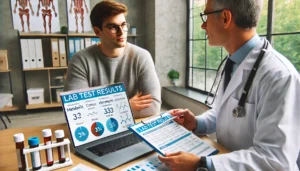What to Expect When Visiting a PCP

Visiting a Primary Care Physician (PCP) is an integral part of maintaining your health. Whether you’re establishing care for the first time or returning for a routine check-up, understanding what to anticipate can make the experience more comfortable. A PCP serves as the foundation of your healthcare team, helping address a variety of needs and acting as a guide to specialized care when necessary.
What Does a Primary Care Physician Do?
A primary care physician is a medical professional specializing in general healthcare. Their focus is on diagnosing, treating, and preventing a wide array of health conditions. They often serve as your first point of contact within the healthcare system, offering services that include but aren’t limited to:
- Chronic Disease Management: PCPs work with patients to manage ongoing conditions. They create care plans and monitor progress through follow-up visits.
- Preventive Care: They offer screenings such as blood pressure checks, cholesterol tests, and vaccinations to help maintain and improve your health.
- Referrals: If your health issue requires specialized attention, a PCP will refer you to the appropriate specialist and continue working with them to coordinate your care.
Their role centers on addressing broad health concerns while fostering a long-term doctor-patient relationship. This becomes beneficial in tracking your health history and providing personalized care.
When Should I Visit One?
There are several instances when scheduling an appointment with a PCP can be advantageous. Common scenarios include:
- Routine Wellness Visits: It’s recommended to visit a PCP periodically to maintain a baseline of physical and mental health. These visits help identify potential health issues early through screenings or lifestyle discussions.
- New Symptoms: If you’re experiencing unexplained symptoms such as prolonged fatigue, pain, or changes in appetite, a PCP can evaluate your situation and determine the next steps.
- Vaccinations or Screenings: Some visits may be specifically for tests or preventive care such as cancer screenings, vaccinations, or physicals for work or school.
How Does a Typical PCP Appointment Usually Go?
A visit to a PCP is typically a generally structured process. These appointments are designed to address a variety of health concerns within a limited time. A nurse or medical assistant might begin the appointment by measuring vital signs. These may include your blood pressure, temperature, heart rate, and weight. These figures provide a snapshot of your current health.
Discussion of Concerns
The PCP will enter the room and begin by discussing the purpose of your visit. Whether it’s for a wellness exam or addressing a specific symptom, they will ask detailed questions to gather information on your health. They may also ask about or comment on some of the measurements recorded by the nurse.
Physical Examination
The PCP may perform a variety of physical checks. This will usually depend on the nature of your visit. The examination might include listening to your heart and lungs, examining your eyes and ears, inspecting your throat, and completing any necessary tests.
Medical Advice and Recommendations
Based on your concerns and the findings of the physical exam, the PCP will provide guidance. This might include lifestyle suggestions, medications, or follow-up appointments. For more complex issues, they may advise additional tests or a referral to a specialist.
Scheduling an Appointment with a PCP
Taking the step to visit a Primary Care Physician can bring confidence to managing your health. They serve as an ally in addressing medical concerns, navigating preventive care, and developing long-term wellness plans. Preparing ahead (by noting symptoms, questions, and health history) can help you get the most out of your appointment.





